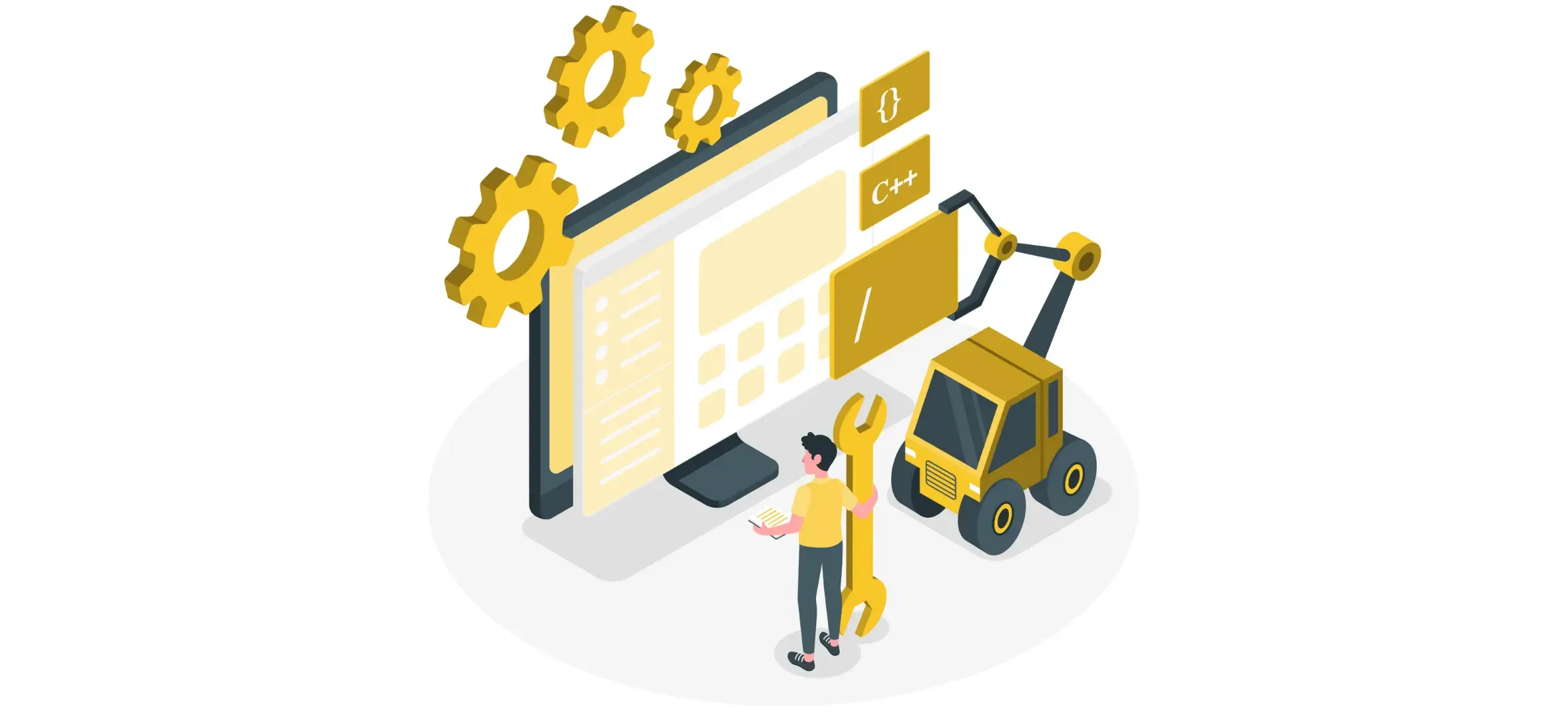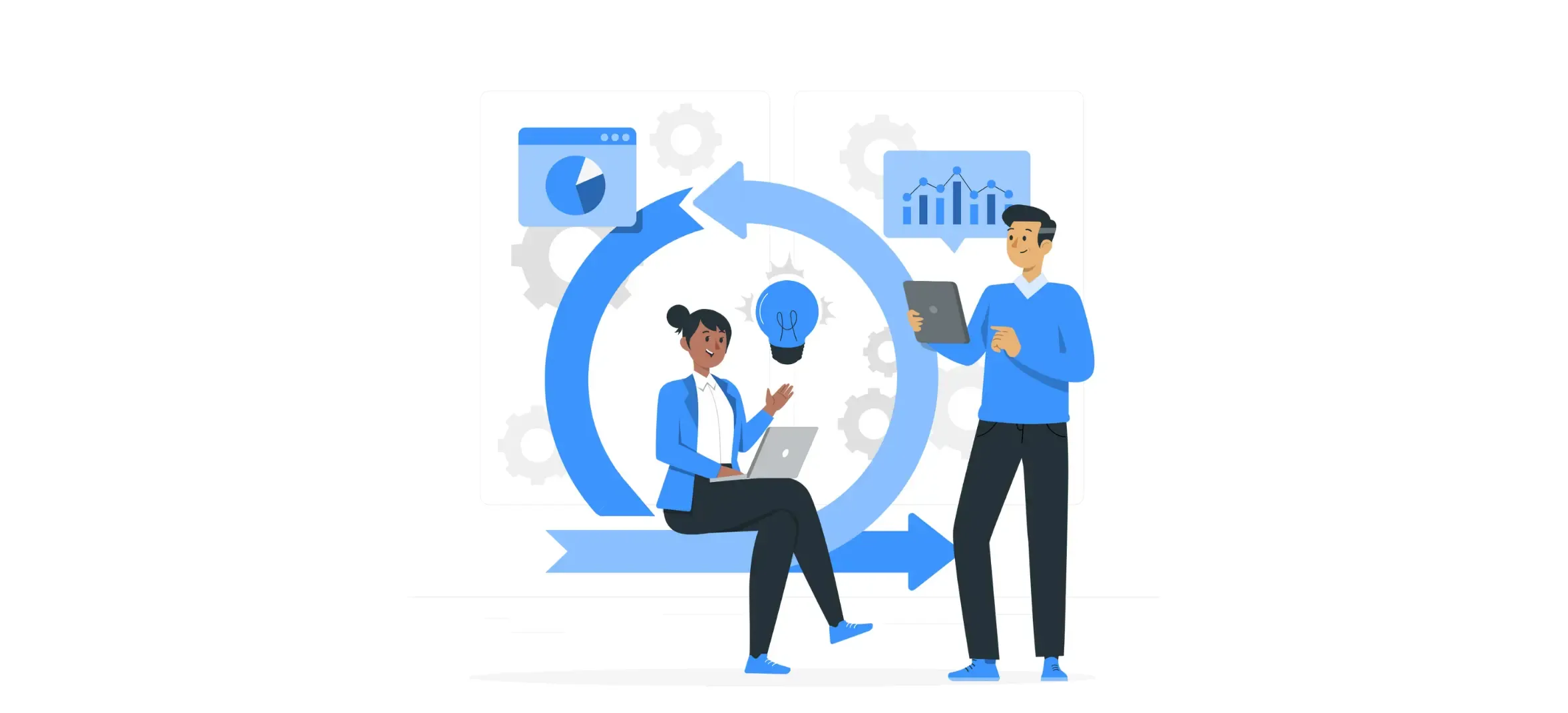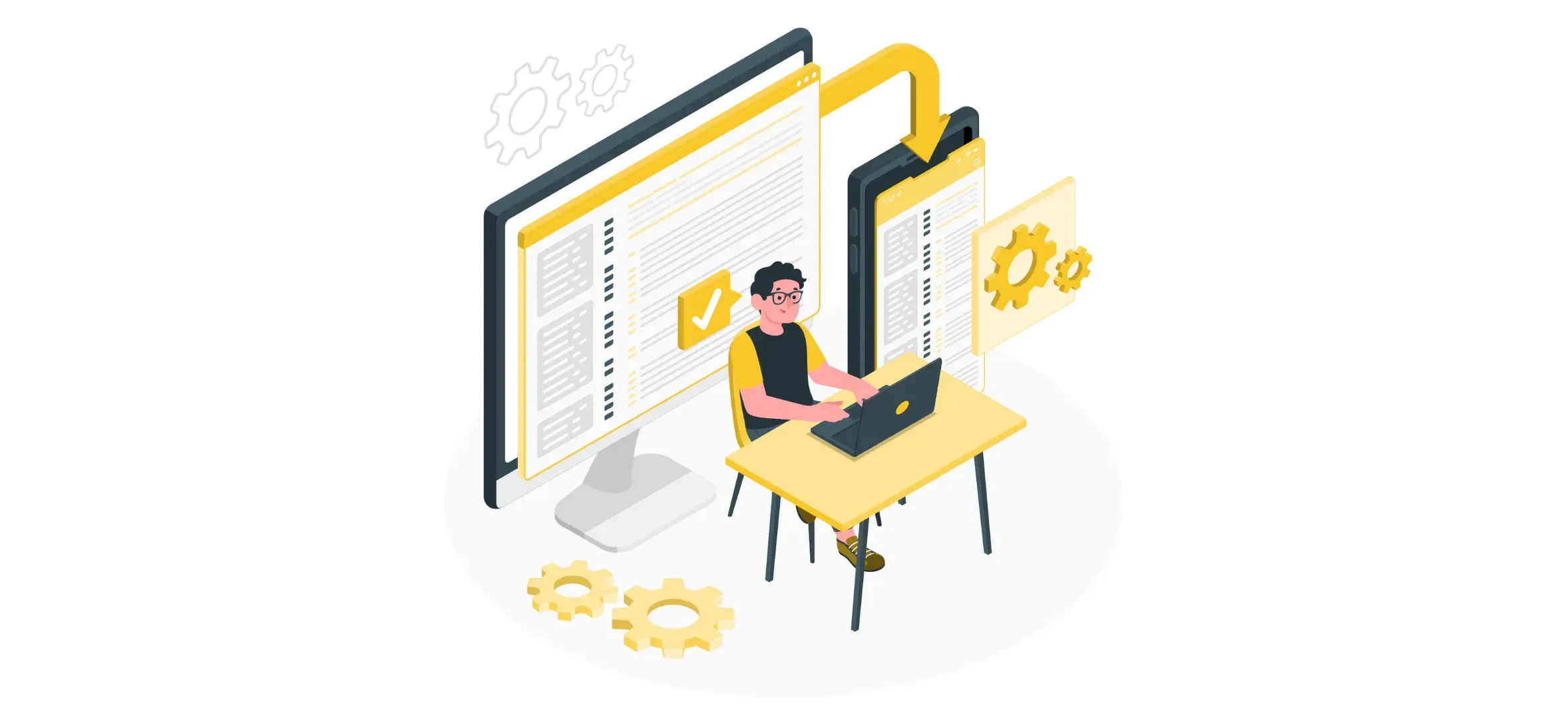Choosing the perfect software development company for your project can be overwhelming. With so many options out there, it’s hard to know where to start. But don’t worry, we’ve got you covered. In this guide on how to choose a software development company, we’ll walk you through the key factors to consider when selecting a software development partner, helping you make an informed, confident decision.
So, how do top software development companies stand out from the crowd? How can you ensure your project meets the highest quality and security standards? And what role does location play in choosing the right team? Let’s dive in and explore what makes a software development company truly great.
What to Consider When Researching a Software Development Company
Before you even start reaching out to potential partners, it’s important to define your project needs clearly when learning how to choose a software development company. What type of software or app are you building? Are you starting from scratch or extending an existing project? What’s your budget, tech stack, and timeline? Once you have these answers, it’ll be much easier to narrow down your options when selecting the right software development company.
Next, dive into your research. Explore review platforms like Clutch or Google, where past clients share their experiences. Don’t just focus on positive feedback, balance it out by reading any negative reviews to get a complete picture of the company’s capabilities. This research will help you make a more informed decision when choosing a software development company.

Key Factors to Consider When Choosing a Software Development Company for Your Project
You’ll also want to consider how well the company understands your business goals and tech needs when figuring out how to choose a software development company. A strong partner doesn’t just bring coding skills to the table; they need to grasp the business context of your project too.
Review their portfolio to evaluate the quality of their past work. Look for relevant experience in your industry or with projects that have similar technical requirements. Pay attention to the technologies they specialize in because choosing the right software development company with expertise in the appropriate tech stack is crucial for project success.
Also, check their organizational skills. How do they manage projects? Which tools do they use for communication and task tracking? Make sure they align with your preferred way of working.
Finally, when you sign the contract, ensure that the terms are clear. Specifically, make sure that you will own the source code and that intellectual property (IP) rights are properly transferred to you. Security is also a big deal, so confirm that the company has measures in place to protect your data and intellectual property when choosing a software development company.
11 Tips for Choosing the Right Software Development Company

Here are the 11 factors you should weigh when deciding on a development partner:
Measure Expertise
Start by exploring their portfolio. Look for case studies or projects similar to yours, and if possible, test some of the apps or websites they’ve built. Dive deeper by checking app ratings in stores like the Apple App Store or Google Play. But remember, reviews can sometimes be manipulated, so get feedback from trusted networks or check platforms like Clutch for authentic testimonials.
Tech Stack Matters
A good company specializes in a core set of technologies. Be wary of companies that boast expertise in a wide range of tools, as this may indicate a lack of focus. Ideally, find a partner with deep knowledge in the specific technologies you need whether it’s React, Python, or another tech stack.
Communication & Process
A smooth development process requires excellent communication. Look for companies that use transparent project management systems like Jira or Slack to keep everyone on the same page. If they emphasize agile practices and regular retrospectives, that’s a good sign they’re committed to continuous improvement.
Find a Partner of Similar Size
Size matters when it comes to attention and resources. If the company is too large, you may not get the attention your project deserves. If they’re too small, they might lack the experience to handle larger projects. Look for a team that’s in the right range to offer personalized service but has enough experience to meet your needs.
Look Beyond Price
While it’s tempting to go with the cheapest option, this can come back to haunt you. Low-priced services might result in a product riddled with technical debt that costs you more in the long run. Focus on the total value you’re getting, not just the upfront cost.
Partner Chemistry
Good relationships are built on trust, understanding, and mutual respect. You’ll be working closely with this team, so pay attention to how well you click. Open communication and transparency are key to ensuring that both sides are aligned on the project’s goals.
Frequent Deployment and Updates
Regular updates on project progress are crucial. Look for a company that frequently deploys demo versions of the product so you can assess its quality and functionality. This helps ensure that there are no surprises and that the project is moving in the right direction.
A Team That Understands Business
Technology isn’t just about coding, it’s about solving business problems. A great software development company will understand your business objectives and work alongside you to make strategic decisions. Look for teams that offer cross-functional collaboration, including business analysts and project managers.
Geography and Communication
Communication barriers can create major problems down the line, so ensure that language or time zone differences won’t be an issue. It’s also a good idea to check the company’s physical location. Some companies may market themselves as US or Europe-based, but their development teams could be located elsewhere. Make sure you’re clear on where the work will actually be done.
Flexibility vs. Inflexibility
Every project evolves, and flexibility is essential. If you’re unsure of all the details up front, consider a time-and-materials pricing model, which gives you more flexibility as the project develops. On the other hand, if you have a very detailed, well-planned project, a fixed-price model may be better.
Protect Your Intellectual Property
Your project’s IP is valuable. Make sure that the company has measures in place to protect your data and intellectual property. Check their contracts to ensure that the IP rights are clearly defined and that your sensitive information will be kept secure.
Red Flags to Watch Out For
While looking for the right software development company, keep an eye out for these warning signs:
- Vague or Generic Portfolio: If the company’s portfolio lacks detail or has generic case studies, it might not be as experienced as it claims.
- No Clear Ownership of Source Code: Make sure you’ll own the code when the project is done.
- Poor Online Presence: A poorly designed website or minimal online presence can indicate a lack of professionalism.
- Generic Testimonials: Be cautious of testimonials that don’t provide specific feedback or seem too polished.
- Negative Reviews: Always check reviews on independent platforms and avoid companies with a lot of complaints.
Additional Factors to Consider
- Onshoring, Offshoring, or Nearshoring?
The location of your development team matters. Onshoring (working with a local team) is great for communication, but it can be expensive. Offshoring (working with teams in distant countries) might be cheaper but can lead to challenges in communication and cultural differences. Nearshoring strikes a balance between cost-effectiveness and communication efficiency.
- Pricing Models
Decide whether a fixed-price or time-and-materials model is best for your project. Fixed-price works well when the scope is clearly defined, while time-and-materials offers more flexibility for projects where requirements might evolve.
Conclusion
Choosing the right software development company is a critical step in bringing your project to life. By focusing on key factors like expertise, tech stack, communication, and partner chemistry, you can find a team that will help you achieve your business goals. Don’t fall for the cheapest option: invest in a company that truly understands your needs, protects your intellectual property, and works seamlessly with you to create high-quality software.
By following these tips and keeping an eye out for red flags, you’ll be well on your way to selecting a reliable, skilled partner for your next software development project. Happy hunting!
Frequently Asked Questions
Which Company is Best for Software Developers?
If you’re a software developer looking to join a top-tier company, there are plenty of big names to consider. Some of the best-known and most sought-after companies for software engineers include:
- Google: Founded by Larry Page and Sergey Brin in 1998, Google is a major player in tech with endless opportunities for growth.
- Microsoft: A global tech giant that offers software solutions and cloud services, perfect for engineers who want to make an impact.
- Meta (formerly Facebook): Known for its innovation in social media and virtual reality, Meta is always on the lookout for top talent.
- NVIDIA: Specializes in high-performance computing and AI, making it ideal for engineers interested in cutting-edge technology.
- Adobe: A leader in digital creativity tools, Adobe is perfect for developers who want to work on products like Photoshop and Premiere Pro.
- Salesforce: Focuses on cloud-based solutions, providing developers with an opportunity to build tools that power businesses worldwide.
- Apple: A tech giant where developers can work on everything from the latest iPhone to innovative software solutions.
- Amazon: Known for its vast e-commerce platform and AWS cloud services, Amazon offers endless possibilities for developers in both tech and logistics.
How to Choose the Best App Development Company?
When you’re looking for the best app development company, you want a partner who really gets your vision. Here’s how to find the right one:
- Understand Your Needs: First, define the purpose of your app. What problem does it solve? Who’s your target audience? What features do you want? This helps guide your search.
- Do Your Research: Look up companies that specialize in the type of app you’re building. Check their reviews, experience, and track record.
- Review Portfolios: A solid portfolio gives you a glimpse into the company’s capabilities. Make sure they’ve worked on similar projects before.
- Ask the Right Questions: Don’t be afraid to ask about their development process, timelines, and post-launch support.
- Compare Costs and Timelines: Get quotes and compare. But remember, don’t just go for the cheapest option, quality matters too!
- Start Small: If you’re unsure, start with a small project or a prototype. This way, you can test the waters before committing to something bigger.
How to Choose the Right Software Development Partner for Your Business?
Choosing the right development partner is key to your project’s success. Here’s a simple step-by-step approach:
- Make a List: Start by listing companies that align with your project needs and values.
- Decide on Location: Consider where your development team will be based. Do you want to work with a local team, or are you open to offshoring or nearshoring?
- Evaluate Methodology: Make sure the company’s development process (e.g., Agile, Scrum) aligns with your preferred way of working.
- Check Expertise: Dig into the company’s experience in your specific industry or technology stack.
- Explore Cooperation Models: Some companies work on fixed-price contracts, others on hourly rates. Make sure the model suits your project.
- Request a Quote: Ask for an estimate that includes cost, timeline, and resources required.
- Check Their Reputation: Look at their reviews, client feedback, and case studies to ensure they have a strong market reputation.
How Do You Structure a Software Development Company?
A typical software development team is made up of several key roles to ensure smooth project execution:
- Business Analyst: Gathers requirements and makes sure the project aligns with business needs.
- Product Owner: Owns the vision of the project and ensures the final product meets expectations.
- Project Manager: Keeps things on track by managing timelines, resources, and communication.
- UI/UX Designer: Focuses on the user experience and the design of the app or software.
- Software Architect: Designs the overall structure of the software, making high-level decisions about its architecture.
- Software Developers: Write the code and bring the project to life.
- Quality Assurance (QA) Engineers: Ensure the product works as expected and is free of bugs. This often includes Test Automation Engineers to streamline the testing process.
- DevOps Engineer: Handles the integration and deployment of the software, ensuring that everything runs smoothly in production.
Each role is vital for the success of a project, and the right team structure can make all the difference.


